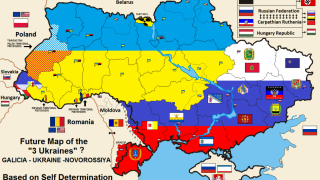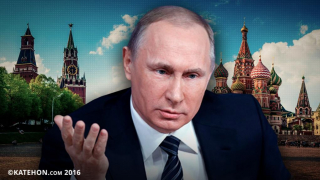Geopolitics has never gone
The crisis between Ukraine and Russia reinstalled geopolitics in the center of interstate relations. Suddenly, the old discipline seems to be the key to understand what is happening in that geography of the globe.
It is right to be so, because while the conflict approach concentrates on multiple factors, geopolitics, i.e. the political interest on a particular land, sea or air space with purposes commonly associated to the increase of national power, certainly gives us the best tools when thinking about the main causes and courses of it.
It is misguided, on the other hand, to talk about the "return" of geopolitics; It is even more if those who talk are not amateurs but versed people in international relations.
There is enough truth in that experience is not too favorable to geopolitics as a contributing discipline to the primacy of principles of international law; but while the world retains certain features (basically, absence of entity or international governance), states, as Churchill warned us, "will never allow an intergovernmental organization adopts decisions by them", they will continue under its own regionalized and margin of power. From this logic, unchanged until today, the use of space in the direction of these purposes will continue to be capital.
It is possible that the end of the Cold War has "relaxed" the importance of geopolitics as a factor in the protection and increase of interstate power, since invariably all end-of-cycle drives favorable expectations for the establishment of an international order more subject to the law and, therefore, more fair.
But globalization, the process which seemed to ensure this course of action, ended being a regime of power that benefits those actors who knew how to use "soft resources" which allowed them to penetrate national spaces that until then had been closed or protected. In this sense, the "Clinton doctrine" (that promoted democracy but above all, it promoted the economic openness) served as one of the most effective strategies of ascending national power on a global scale.
Because of this, more than the transit "from geopolitics to geoeconomics" as claimed Edward Luttwak, the nineties led to the predominance of one "posgeopolitics" conception that never ceased to associate space (in this case on a planetary scale) with maximization of national power.
But then, the classical geopolitical practice was not abandoned neither, because the projection of power or "geopolitics of one party" that was practiced by the United States in solitary supremacy meant mostly its establishment not in "antigeopolitics spaces", i.e. spaces without relationship with the national interest, but in selective spaces or of high "geopolitics condensation”.
The last years of the twentieth century and the first of the new century have been prodigal in geopolitical issues: since the nuclear testing in Southern Asia to the enlargement of NATO or the very same attacks perpetrated by the transnational terrorism in the more protected national space of the globe, Passing through aerospace conceptions that explicitly threatened to impede, when not denying, access to outer space to those states or non-state actors that could challenge the U.S. national security in this new geopolitical dimension, all have meant cases that were framed in thoughts that conclusively associated national interest with geographical space.
More recently, the conceptions of China in relation to the "active defense of the coast"; the spatial reorientation of Japan regarding the challenges to its security; the NATO "New Strategic Concept" (which in Latin America lifted very few alerts, including the former Minister of Defense of Brazil Nelson Jobim); The importance of the Indian-Pacific space as a new United States’ selective area of interest; the Russian "Operation of counter offensive defense" in sensitive areas such as the Caucasus; and the profuse activity of states mostly preeminent in ocean spaces, maritime and continental with the purpose of establishing presence in "global commons", etc., are some of the cases that show the vitality of this misnamed "cursed discipline".
Geopolitics is not back because of the existence of major international crisis that is explained largely by homogeneous interest. Geopolitics was always there and will continue to be in almost all the spaces of the globe. Only that is activated when players choose to make movements, something which can never be seen by observing the attractive and immobile planisphere.













